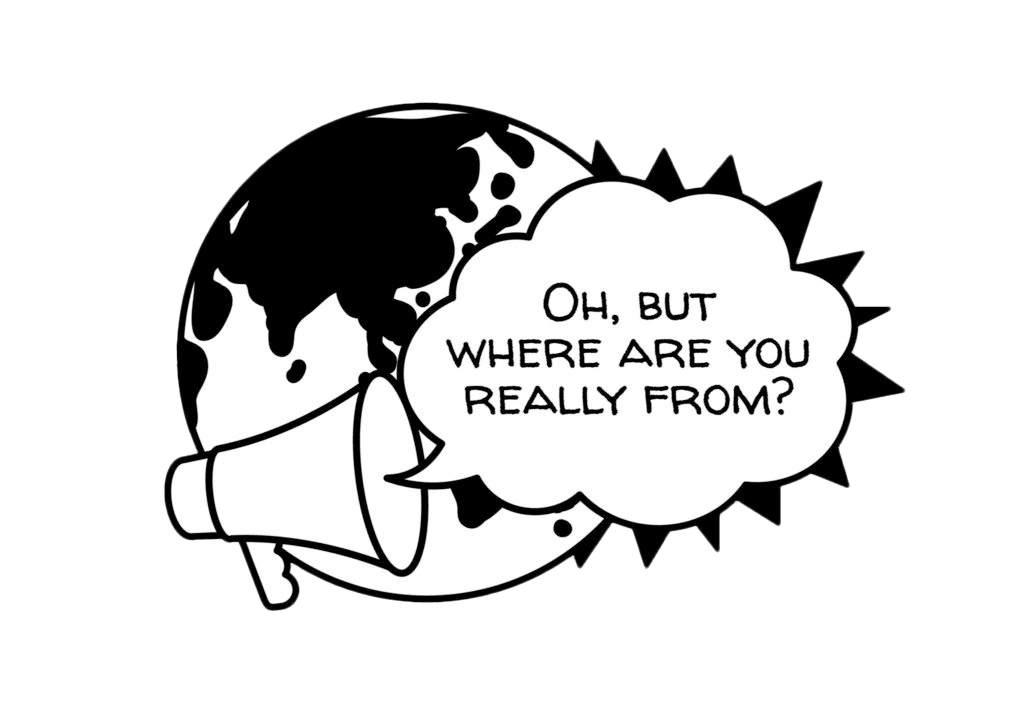Oh, But Where Are You Really From? (OBWAYRF) is a Woroni Radio show headed by five undergraduate women of colour: Hana Yabuki, Jharna Chamlagai, Manaswini Iyengar, Sumithri Venketasubramanian and Yashi Kotnala. Launching in the second semester of 2017, it will provide a platform for the stories and issues that people of colour face and specifically how they intersect with other identities. Rather than merely acknowledging that there is the ‘potential for improvement’ within social movements and advocacy to embrace this diversity, the show hopes to have an open, productive conversation about how this change can come about. To prepare for launch of the show, creator Sumithri Venketasubramanian sat down with herself to practise her interviewing skills, and to show us what OBWARYF is gearing towards.
Where did you get the idea for ‘Oh, But Where Are You Really From (OBWAYRF)?’
I love advocacy, and I think it has amazing potential to uplift the voices of people who are less privileged in society. But just as important is the need for intersectionality within social movements. This means that in attempting to break down existing oppressions, we need to acknowledge how different identities – say, a woman of colour’s race and gender – come together to present an individual with challenges that are not experienced or are experienced differently by white women or men of colour.
I believe that culture is a lens through which our identities are experienced. The way that feminism presents itself in India is different to that in Singapore; the decision to come out (or not) as queer* to one’s Arab Muslim family is influenced by a set of factors unique as compared to somebody raised in a white, non-religious household. Different social attitudes toward disabilities and mental illnesses in a society shape the challenges faced by people who live with disabilities or mental illnesses. I feel it’s important to explore these intersections and represent them in the advocacy we pursue because if we don’t, then who is advocacy really for?
Why did you pick radio as the format for OBWAYRF? And on that note, why the name?
<Laughs> I’ll answer the second question first. My team and I wanted to pick a name that would be familiar, cheeky and a little confronting too. It speaks to the idea of there being a ‘default’ or ‘core’ identity of a society, and people who don’t fit into that box are othered. With the show, we’d like to challenge that there is ever a ‘typical’ representation of identities and forms of oppression.
I’ve wanted to be on radio since I was 11, so in part of this is me living out my childhood fantasy. But beyond that, radio provides a platform for guests to speak anonymously about their experiences and thoughts, while also removing the visual image of who’s talking – a basis upon which we frequently make assumptions about identities and experiences.
What can we expect from OBWAYRF?
There are two things we’re aiming to provide: representation of issues, and representation of identities. The show will allow people to share their stories, ones they feel haven’t been presented or addressed in mainstream discussions about their identities. There’ll be lots of super amazing guests, from academics to people involved in advocacy both on and off campus to just ‘regular’ students with stories to share! Guests will be interviewed on-air about their opinions on how advocacy can be made more intersectional, and there will be the opportunity for listeners to request specific topics or questions to be discussed during the show. We’re also looking to have a ‘performance’ segment where people of colour who are into comedy, poetry, music or any other performing art are provided with a platform to share their work. And as well as this, a segment where we’ll be talking about less-represented current events that are relevant to the theme of the show.
Also, just to plug this here: We’re looking to have a live teaser episode during Ethnocultural Week (semester 1, week 10) and anybody is welcome to come and watch. Look out for OBWAYRF on the Ethnocultural Week schedule for when and where this will be happening!
If you know anybody who would be great to have on-air (they do not necessarily have to be ANU students), or if you have any ideas or concerns about the show, please get in touch with Sumi at sumithri.rv@gmail.com.
We acknowledge the Ngunnawal and Ngambri people, who are the Traditional Custodians of the land on which Woroni, Woroni Radio and Woroni TV are created, edited, published, printed and distributed. We pay our respects to Elders past and present. We acknowledge that the name Woroni was taken from the Wadi Wadi Nation without permission, and we are striving to do better for future reconciliation.
